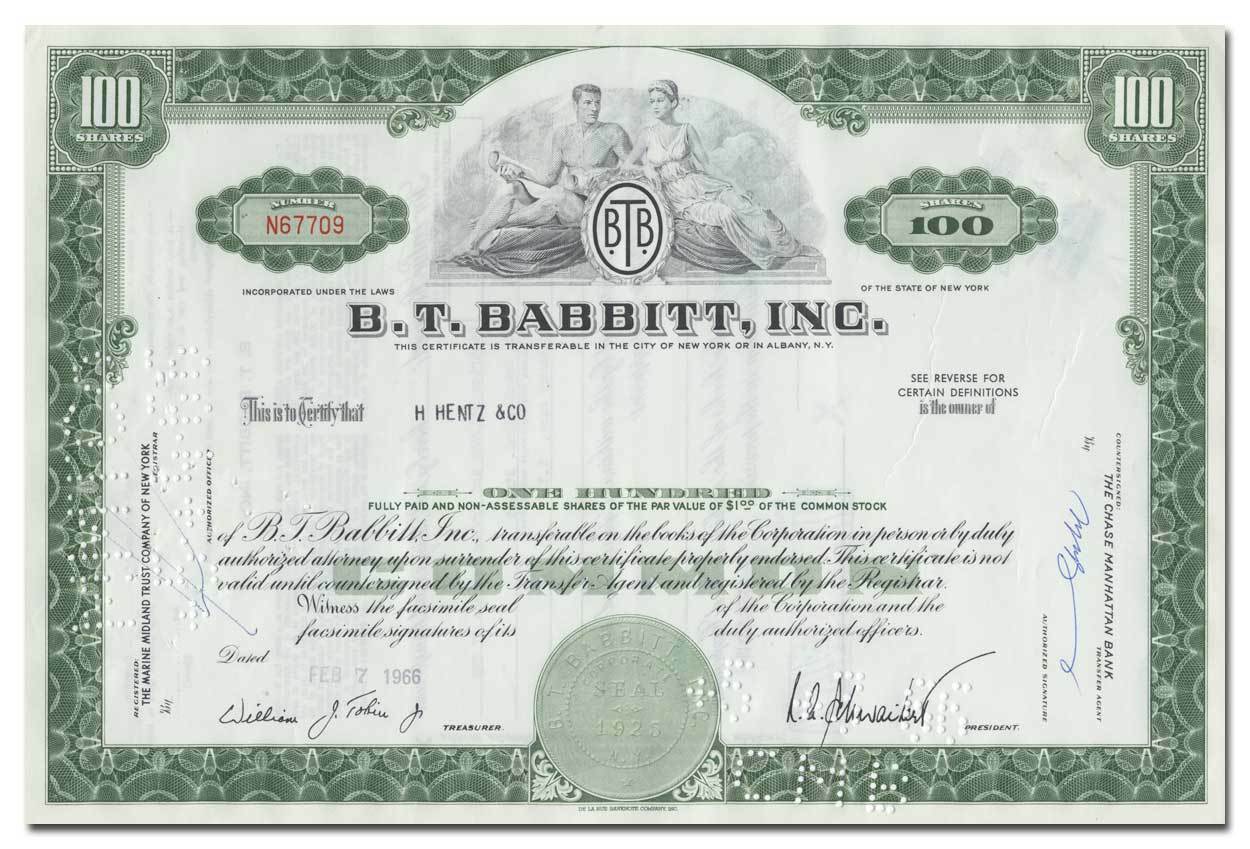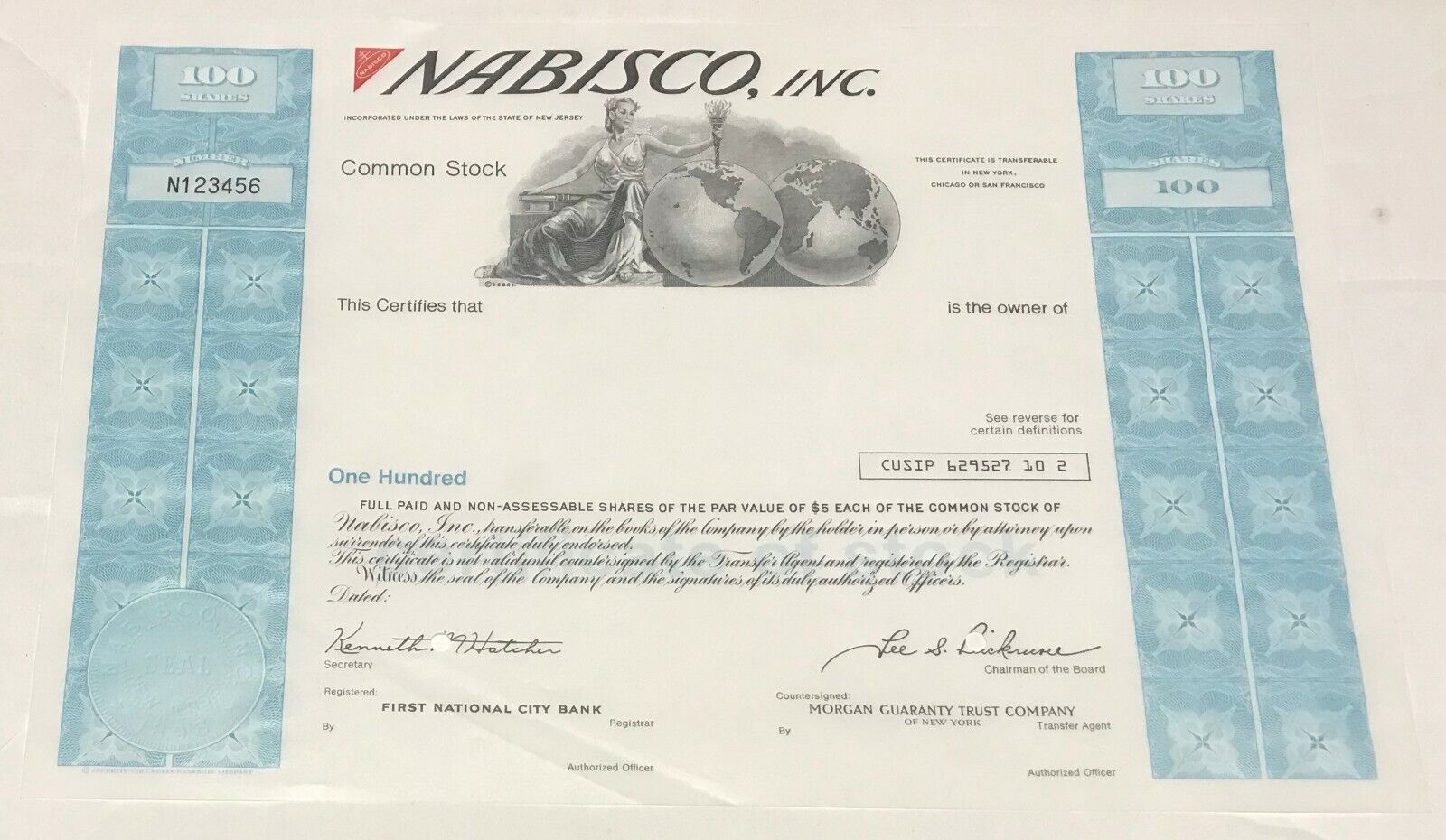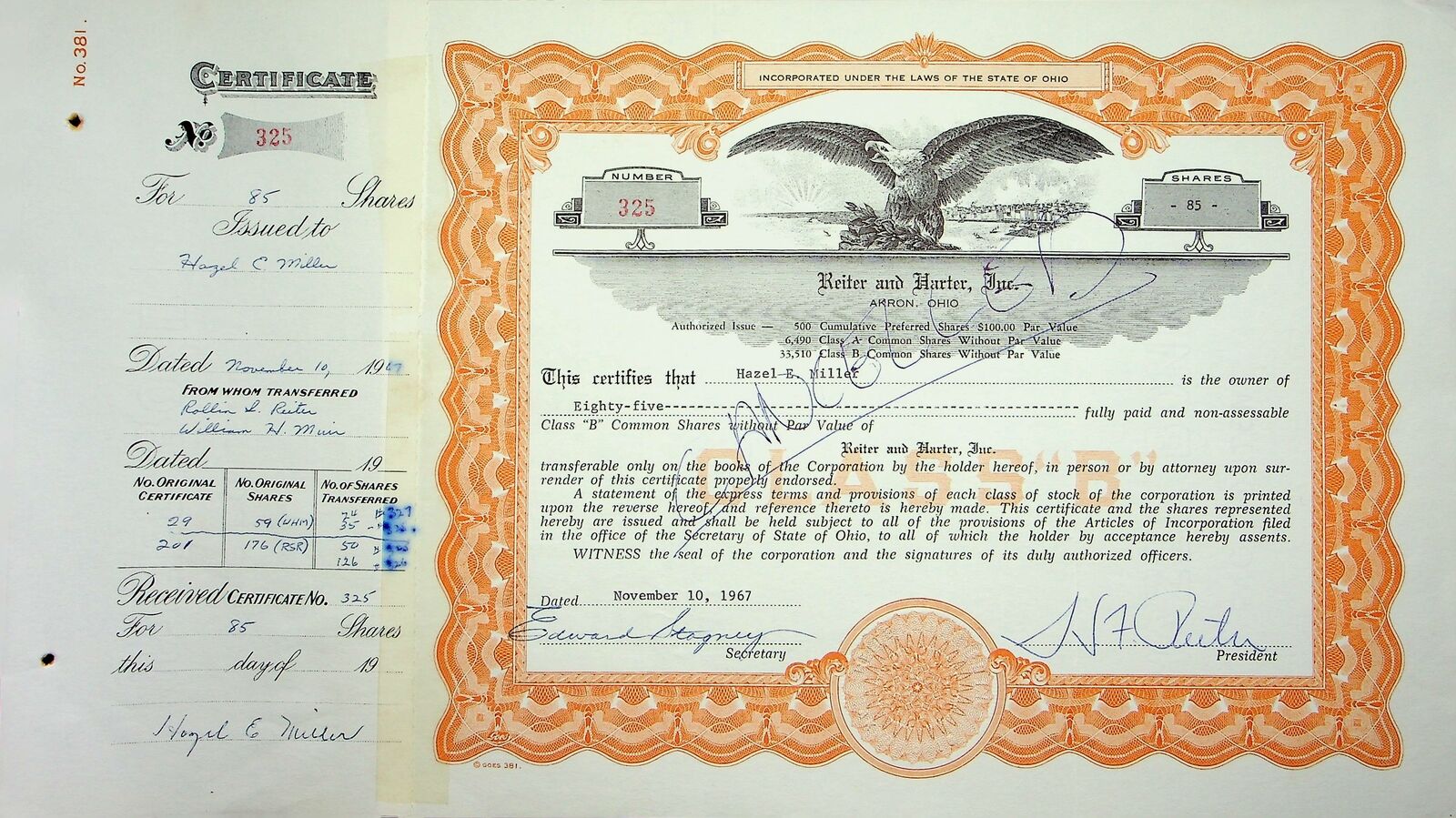-40%
B. T. Babbitt, Inc. Stock Certificate
$ 0.52
- Description
- Size Guide
Description
Product DetailsNicely engraved antique stock certificate from B. T. Babbitt, Inc. dating back to the 1960's. This document, which carries the printed signatures of the company President and Treasurer, was printed by the De La Rue Banknote Company and measures approximately 12" (w) by 8" (h).
The certificate's vignette features a male and a female flanking the company logo.
Images
The images presented are representative of the piece(s) you will receive. When representative images are presented for one of our offerings, you will receive a certificate in similar condition as the one pictured; however dating, denomination, certificate number and issuance details may vary.
Historical Context
B. T. Babbitt, Inc. was founded by Benjamin Babbitt was born in Westmoreland, on May 1, 1809. His parents were Betsey (Holman) Babbitt, and Nathaniel Babbitt, a blacksmith, tavern owner and ensign in the militia of Oneida County, New York. As a child, he attended public school and worked on the family farm. He "possessed a most ingenious and inquiring disposition", and by the time he was twenty he was working in a machine shop and had learned the trades of wheelwright, machinist and file maker. He took an interest in and studied chemistry from a professor who visited the work shop occasionally to give instruction to the workmen. By age twenty two Babbitt had enough money to open his first machine shop in Little Falls, New York, where for twelve years, he manufactured pumps and . During this time he invented a practicable and economical mowing machine, one of the first made in America. His business was destroyed by a flood in 1834, but he persevered.
Babbitt moved to where he began to manufacture "saleratus" (or sodium bicarbonate, commonly called baking soda). He used a process which he invented, and sold the in small, convenient and well marked packages. He packaged and marketed his product so well that he quickly controlled most of the sodium bicarbonate market. He started producing a yeast baking powder, a soap powder and several varieties of soap, all of them also successfully marketed well, and very popular. In 1851, he became the first to manufacture and market soap in individual bars, which he packaged attractively and added a claim of quality. He took the ordinary and proved it could be turned into a marketable product. He, along with others like him, helped change American merchandising. Babbitt invented most of the machinery he used in his production plants. He owned extensive iron works and machine shops in Whitesboro, New York. He held 100 plus patents, beside inventions concerning his own field of business, his invention ideas ranged from wind motors, to gun barrels, armor plate, ventilators, steam engine appliances, canal boats and artificial icemakers. Babbitt is credited with having first conceived the idea of using the power of .
Babbitt became known as a genius in the art of . He rivaled his friend P. T. Barnum in originality and success, becoming a household name throughout the U.S. Babbitt met a young shoeshine boy with the name B. T. Babbitt. When he told the boy his name was also B. T. Babbitt, the surprised boy said, "Lawd mister, did your momma get your name off a soap box too?"
His soap was one of the first nationally advertised products. The soap was sold from brightly painted street cars with musicians, which helped lead the phrase "get on the bandwagon." Babbitt was the first manufacturer to offer tours of his factories and one of the first to give away free samples. He used the advertising slogans, "Soap for all nations" and "Cleanliness is the scale of civilization".
Babbitt died October 20, 1889, and was buried at Woodlawn Cemetery, Bronx, New York.










